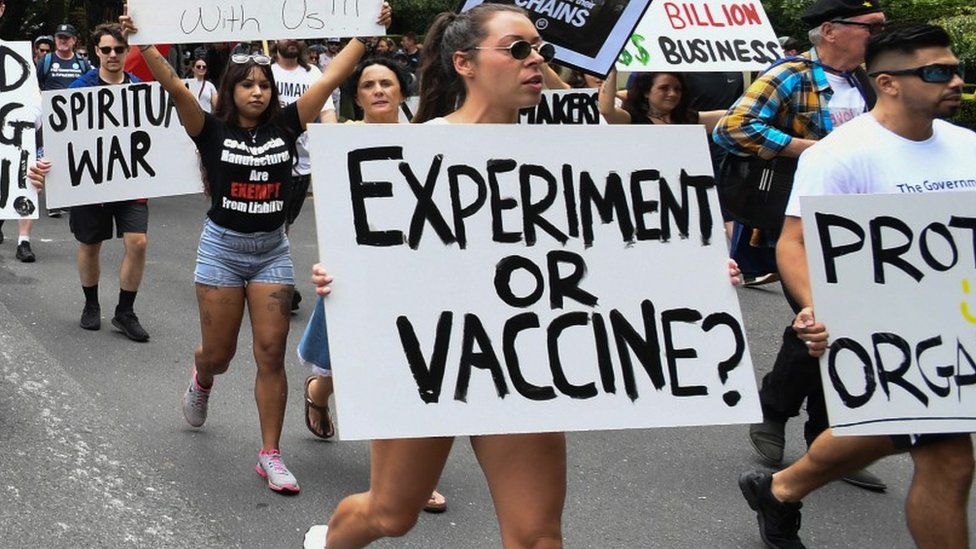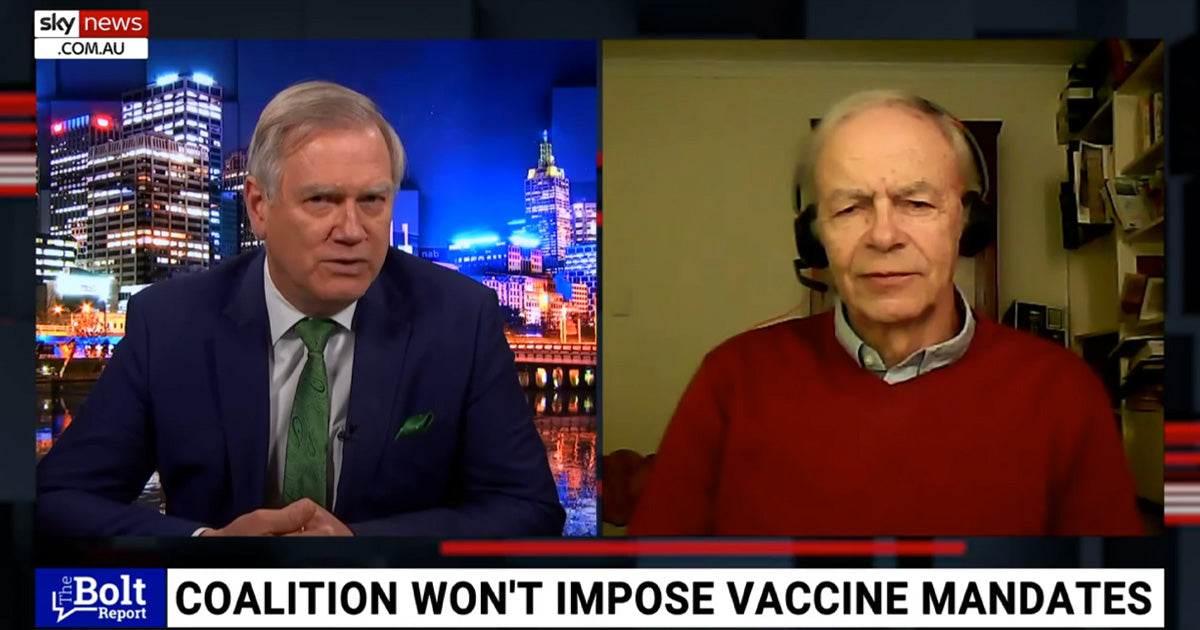Don't worry yourself too much about the asteroid thing- but we can't say the same about climate change. People are increasingly worried, and it's reflecting in mental health stats. If that's not enough, did you know that child marriages are still happening in Western nations including our own? Ayaan Hirsi Ali wakes us up to this little-known human rights issue.
As always, let us know about any interesting news you come across – we love to hear from you.
Warm regards,
Suzi
COVID GETS CRISPR

Perhaps you've heard about CRISPR being able to make 'designer babies'. Well now scientists are using this genome editing tool to stop the COVID-19 virus from replicating in infected human cells!
In a study published in Nature Communications, Australian researchers including Mohammed Fareh (pictured) show that the enzyme CRISPR CAS 13 B can bind to target RNAs and degrade the part of the virus’ genome that is needed to replicate.
The researchers say that this treatment is especially helpful for people with HIV in developing countries, who are very vulnerable to COVID but face problems in getting the vaccine, and any boosters as the virus further mutates. In the future, the scientists hope that if someone tests positive for COVID, they could immediately take CRISPR-Cas13b to stop the virus from progressing to the lungs, and that this drug will be able to suppress many, if not all variants due to its resilience to viral evolution.
How amazing is that? We're lucky to have such incredible scientists doing amazing work in our own backyard.
VEXED BY THE UN-VAXXED
Until we’re all using CRISPR to edit our genomes every which way, we’ve gotta make the most of what we’ve got, and what we’ve got are vaccines!
Yet, there’s still a lot of hesitancy, especially in the US, about getting the jab. This is the topic Michael Shermer, founder of the Skeptics Society, has taken on in his latest Quillette article Vexed by the Un-Vaxxed. I have to say that it’s a very thorough piece and he answers all the most common hesitations that people have about the jab.
Have you read it yet? Let us know what you think!
WHY IS CHILD MARRIAGE LEGAL IN THE WEST?
When you think of forced child marriage, you probably assume that it doesn’t happen in the West. Well unfortunately that’s not the case.
In a recent article published in UnHerd, Ayaan Hirsi Ali, herself a victim of forced marriage, enlightens us to the fact that girls are being forced to marry in countries such as the US, UK, Canada, Australia, and in European nations. It's also a topic she discussed in her last two-part podcast episode with our friend Yasmine Mohammed, who, while living in Canada, barely escaped a forced marriage.
While forced marriage of a person under 18 is illegal in Australia, there are many reports of it happening. In the US, there is still a legal pathway to marrying a minor in 44 states. Hirsi Ali argues for change around how we apply the term “marriage” to these arrangements, as love and romance have little to do with them. In order to stop people (or government bodies) from turning a blind eye to these incidents for fear of being culturally insensitive, she argues we need to call child marriages what they are: slavery.
World Vision has reported that COVID-19 has driven the biggest surge in child marriage in 25 years, possibly due to children's education being interrupted and families struggling to make ends meet and gain access to basic services. Some girls are married by their carers to alleviate their ‘burden’ on household finances, or to protect them from increased threats of violence. Others get married as a result of teenage pregnancy or the death of primary caregivers.
DRAGON-LIKE FOSSIL FOUND

Next up, we all know that Outback Queensland is home to some very strange creatures, but this one takes the cake. Scientists have identified the fossil of a pterosaur, a flying reptile that lived some 105 million years ago, and a close cousin of the dinosaurs. The fossil was discovered in 2011 by council worker Len Shaw, who would search for fossils during his lunch break – what a legend!
UQ researcher, Tim Richards, says we are very lucky to have this rare fossil, as pterosaur bones are very light and fragile, which made them perfect for flying but bad for preserving. Pterosaur fossils have been found in Australia before, but this one seems to be an entirely new species. They’ve called it Thapunngaka shawi, a combination of the Wanamara nation words for “spear” and “mouth”, and the surname of Len Shaw. How creative is that!?
This pterosaur would have looked a bit like a dragon with a wingspan of seven metres, just a bit smaller than a hang glider, and 40 razor-sharp teeth. So if you think getting swooped by a magpie is bad, imagine how terrifying these creatures would be!
ASTEROID RISK RISES

Have you heard of Bennu? He’s one of the most hazardous asteroids in our solar system, and he’s recently been visited by the NASA Spacecraft OSIRIS-REx to collect a little sample from him.
Bennu is actually a grouping of rocks that’s as tall as the Empire State Building, and the spacecraft was orbiting him for more than two years before it touched down on his rocky surface. The sample won’t make it back to Earth until 2023, and scientists hope it will help them understand how planets are formed and how life began. The data already collected in orbit has helped scientists better predict Bennu’s chances of colliding with Earth, and they predict that through the years of 2300, Bennu will have a 1 in 1750 chance of hitting Earth, which is a slightly higher prediction than before, but nothing to lose sleep over.
CLIMATE CHANGE AND MENTAL HEALTH

Something that people are losing sleep over, however, is climate change. In fact, Australians are three times more worried about climate change than COVID, according to the ABC’s Australia Talks National Survey. Interestingly, women, young adults, the economically well-off, and those in their middle years (aged 35 to 54) showed the highest levels of concern about climate change.
There’s no surprise that mental health is being affected, as every time we turn on the TV or open our news app, there’s new, catastrophic news about the environment. The most recent IPCC report has caused UN scientists to call it a “code red for humanity”, and it made more precise and warmer forecasts for the 21st century than it did in the last IPCC report of 2013.
Some commentators, such as Michael Shellenberger, argue that while climate change IS serious and changes definitely do need to be made, alarmism does nothing but makes us all, including children, very anxious about the future of humanity.
What do you think? Do you think alarmism is justified because it gives us that kick into making a change? Or do you think the damage to mental health is a good enough reason to tone down the catastrophic language?



Leave a comment
This site is protected by hCaptcha and the hCaptcha Privacy Policy and Terms of Service apply.